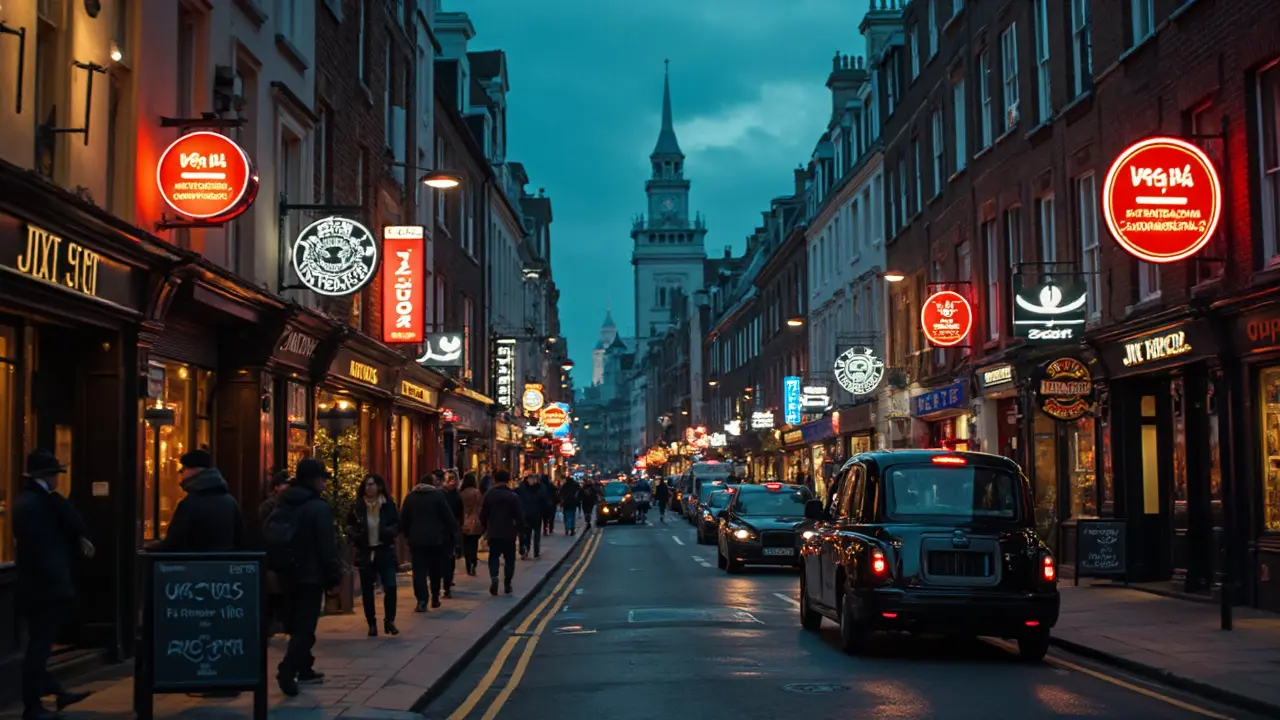You’d probably be surprised how many people can’t say exactly what separates escorting from prostitution in London. Truth is, these two worlds mix in the public imagination all the time. Movies blur them together. Tabloids exaggerate or oversimplify. And honestly, in the city’s nightlife shadow, that confusion doesn’t just affect punters or the curious — it lands real-world legal consequences for workers and clients.
What Exactly Is an Escort Service?
You can’t dig into legal differences until you get clear on what “escort” actually means in London. At a glance, an escort service connects clients with companions—typically women, but obviously men and nonbinary folks are in the scene too. The core offer? Social time. Think dinner dates, parties, theatre shows, travel companions—sometimes a flirty vibe, but not necessarily sex. Agencies usually position escorts as professionals who provide company or conversation for a fee. Some websites show portfolios and bios almost like LinkedIn profiles, highlighting language skills or hobbies over anything remotely explicit.
In fact, it’s legal to work as an escort in London as long as you steer clear of sexual solicitation in public and don’t solicit on the street. Escorts usually arrange bookings in advance, through agencies or online platforms, which helps separate them from classic street-based sex work by the authorities’ eyes. The law says you can be paid for your time and companionship. What happens during that time? That’s private, right? Technically, if an escort and a client decide together—as private citizens—that sex will happen, the law isn’t all that bothered. But the deal cannot be for money exchanged directly for sex; it must be for the *time*.
So, if you’re someone hiring an escort or setting up your own business as one, be aware: Escorts keep their offerings above board by framing every service around social interaction and access to their time, not their body as an explicit sexual commodity. London escort agencies cleverly avoid language about sex on their websites or profiles. Some even provide training to new hires, coaching them on how to keep everything professional and safe—no different to a personal chauffeur or translator service, at least on paper.
Escort agencies in London fall under standard business regulations: pay taxes, keep records, don’t falsely advertise. Police rarely trouble reputable agencies acting within the bounds of the law; crackdowns mostly target street or brothel-based set-ups, not upscale companionship providers. The escort sector in London is actually huge, with estimates in 2024 putting it at upwards of £500 million in annual turnover, covering everything from luxurious Mayfair agencies to gritty independent operators listed on apps. So when you search for “escort London,” what you’re really seeing is a market that’s both legal and carefully crafted around the idea of paid social connections.
So, How Is Prostitution Different?
Here’s where things get tricky. Prostitution is when someone offers sexual services for payment, and while you might not believe it, the act of selling sex isn’t illegal in itself in England and Wales. But just about everything that tends to go with it is tangled up in illegality. For one thing, street prostitution—soliciting or loitering for sex—is illegal, as is kerb crawling (clients driving slowly in an area looking for sex workers). Laws also ban brothel-keeping: two or more sex workers sharing a flat to stay safe can be prosecuted for running a brothel, which has seen calls from advocacy groups and even several MPs in the past years to change the law.
The government claims these laws protect sex workers, but a 2024 review by the London School of Economics found the rules actually make the job riskier, forcing sex workers to operate alone and decreasing their ability to build support networks. Police in London still routinely bust brothels and caution or fine people caught buying or selling sex on the street. Related offences, like pimping (living off earning from prostitution), controlling for gain, and paying for sex with someone who’s been coerced, are all prosecuted more severely since the Modern Slavery Act.
Prostitution’s criminal framework hinges on public order concerns. Neighbors call the cops about ‘massage parlours’ or visible sex trade. Authorities run periodic stings in known red-light zones, such as parts of King’s Cross and Soho, especially in response to local pressure. Getting arrested doesn’t just mean a court date—there’s the stigma, obstacles to future work, and risk of deportation for migrants, who are heavily represented among London’s sex worker population. Data from 2023 suggests nearly 75% of women prosecuted for prostitution in London are not UK nationals—a fact that rarely makes headlines.
Some clients don’t realize: paying for sex in itself isn’t a criminal act, unless the sex worker is being controlled or forced, or is a victim of trafficking (police regularly patrol hotels and flats for signs of this). Some local councils have introduced “John schools” in the last three years—educational programs for buyers caught soliciting—to crack down on street-based sex work and address issues like neighborhood safety and public health. If you’re thinking all this sounds like a legal maze, you’re not wrong. Many in the industry say this confusion is the point—it keeps everything in a grey area that’s hard to challenge in court.

The Legal Line: Is It Really That Clear-Cut?
You might assume escorting is squeaky clean and prostitution is always crime. Not quite. The line between them rests almost entirely on how services are advertised and arranged. The big difference: escorts sell time, not explicit intimacy. Payment can’t be for sexual services directly, even though both escorting and prostitution may involve sex if mutually agreed in private.
Now, let’s get specific. London’s Metropolitan Police often see escort agencies as “off-limits” if they behave like discreet, legitimate businesses: no street advertising, no overt solicitation, no exploitation. But any whiff of coercion, under-the-table payments, or minors involved will bring down the law. Prostitution—solicitation, brothel-keeping—lands more easily in the ‘illegal’ pile, mostly because those activities are public-facing and harder to pass off as anything else. Soliciting on the street for sex is almost always policed, especially near schools and family neighborhoods; escort work via agency in an upscale hotel generally is not.
The Advertising Standards Authority actually updated its guidelines in 2022 to keep escort listings within the bounds of “companionship,” banning suggestive imagery or words implying guaranteed sex. Yet London forums and review sites are filled with “code language” and euphemisms—pros know the lingo, and agencies walk a careful line. Advice for escorts is to avoid making any sexual promises via text, call, or ad; keep it to “company, conversation, or dinner.” Do the law officers always believe it? Not always, but unless someone reports coercion or illegal selling, most cases never get to court. Escorts get arrested far, far less than street-based sex workers because the transaction appears—on the books—like a talking gig, not a sex-for-cash deal.
If you’re navigating this world, remember: what you say and write matters. Agencies screen clients partly to keep undercover officers at bay and rely on strict scripts for calls and replies. Tips here? Keep your communications clean, professional, and rooted in “time together” and “social experiences.” It’s not just legal cover—it also builds client trust, showing you’re serious about safety. A police raid or agency investigation can land not only fines but ban listings and damage reputations, which are the real currency in escorting.
Real-World Risks and Social Stigma
Both sex work and escorting in London carry stigma. You’ll hear talk of glamour and easy cash, but the reality involves complex power dynamics, client background checks, agency commissions, unreliable bookings, and violence—more so on the street, but not unknown in upscale surroundings. Escorts often report difficult negotiations about what’s actually on offer, as clients might hope for more than advertised or try to cross boundaries once behind closed doors.
Street-based sex workers are at higher risk of violence from clients and police. More than one study out of University College London has tracked how legal uncertainty—the threat of arrest or the need to work solo—makes women vulnerable to assault with little ability to call for help. Escorts running through agencies face less visible risk but still have to deal with fake bookings, stalker clients, or non-payment. Both must practice huge caution with personal information and rely on screening processes, support from trusted colleagues, and often online communities for backup.
Socially, there’s a spectrum. Most Londoners glance past escort ads in Tube stations or on phone boxes. The debates rev up only when talk turns to neighborhood safety or human trafficking. Media likes a scandal—often lumping all forms of paid intimacy together, ignoring the legal and personal nuances. Even dating apps have begun cracking down on “sugar dating” arrangements which, though technically not illegal, blur into similar territory as paid companionship. Most escorts and sex workers are intensely aware of the risks to their reputation, families, and futures—hardly a “no strings, big bucks” fantasy.
If you’re thinking about working or hiring? Use established agencies, vet all meetings carefully, lock down your phone and online footprint, and talk through expectations in advance. Surprising how many bad experiences come from unclear up-front agreements or skipping proper references. Online forums—like some on Reddit or The Student Room—are filled with real stories and advice, if you know where to look. No agency worth its salt will pressure or skip over clear consent—and the good ones offer not just booking systems, but aftercare and support if anything goes wrong.

Tips for Navigating Escort and Sex Work Laws
Staying within the law isn’t just about avoiding arrests—it's also smart business and personal self-protection. Here are some helpful things to keep in mind if you’re considering working as, or booking, an escort in London:
- Always use reputable agencies that screen clients and have a digital (not cash-only) paper trail.
- When communicating, never offer or accept explicit discussions of sexual services for money.
- Insist on clear terms: payment is for time, social company, or attendance, not sex.
- Meet in public first if possible, and always tell a friend where you’ll be and who with, especially for private calls.
- Keep good record-keeping for tax: London tax authorities do run checks on cash-heavy small businesses.
- Avoid any setups where two or more sex workers share a space—this constitutes a brothel under UK law, even if for safety’s sake.
- If approached by police, stay calm, don’t answer more than you have to, and ask for legal representation. Don’t admit to selling sex for cash.
- Stay away from agencies or clients who pressure you about the “extras” or insist on secrecy beyond normal privacy. That’s often a red flag for trafficking or exploitation.
- Confidentiality matters: both escorts and clients can face reputational fallout if things leak. Protect your privacy and don’t overshare online.
- If in doubt, consult organizations such as National Ugly Mugs, Beyond the Streets, or the English Collective of Prostitutes. They offer advice, warning signs, and safety tips for sex workers—and they keep all contact confidential.
The law may seem like a moving target, but knowledge is the real shield. Around 80% of new laws and police guidance in the last five years were shaped by real-world cases from London’s streets, clubs, and agencies. So it pays—sometimes literally—to know the difference between an escort and a sex worker, between what’s legal and what’s not, and to keep every transaction anchored in clear understanding and respect for boundaries. That’s the only way, in London’s ever-evolving landscape, that anyone stays safe and out of legal trouble—whether you’re booking, working, or just curious where the line actually is.



